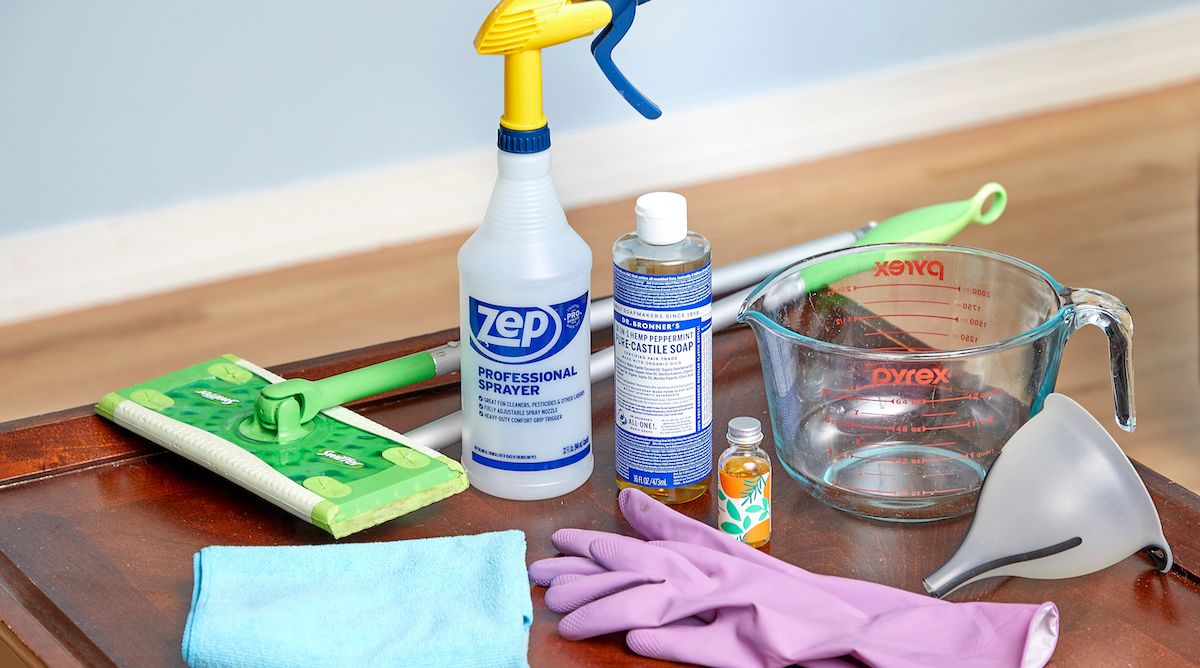Maintaining the natural beauty of hardwood floors requires not just regular cleaning, but also the right kind of cleaning. While commercial floor cleaners are widely available, many people prefer natural, homemade alternatives for safety, cost-efficiency, and environmental reasons. In this article, we will explore the best homemade hardwood floor cleaner options that are effective, easy to make, and safe for both your family and your flooring.
🟢 Why Choose a Homemade Hardwood Floor Cleaner?
Homemade cleaners provide several advantages:
- Non-toxic and safe: Most DIY floor cleaners use ingredients that are safe for children, pets, and people with allergies.
- Cost-effective: Basic ingredients like vinegar, baking soda, and essential oils cost significantly less than commercial solutions.
- Environmentally friendly: Reducing the use of chemical cleaners helps decrease indoor air pollution and minimizes environmental harm.
Hardwood floors, often made of oak, maple, or cherry, require gentle yet effective cleaning solutions. Overuse of water or harsh chemicals can warp the wood, strip finishes, or leave unsightly residue. According to Wikipedia, proper maintenance is essential to ensure the longevity of wood flooring.
🟢 What to Avoid When Cleaning Hardwood Floors
Before exploring recipes, it’s important to understand what not to use:
- Too much water: Standing water can seep into the wood, causing warping or mold.
- Ammonia-based products: These can dull the finish and damage the wood.
- Abrasive tools: Scrubbing with steel wool or stiff brushes can scratch the surface.
Always use a soft mop or microfiber cloth and ensure the cleaner is lightly sprayed, not soaked, onto the floor.
🟢 Best Homemade Hardwood Floor Cleaner Recipes
Below are tried-and-true recipes that work well on sealed hardwood floors:
1. Vinegar and Water Solution
Ingredients:
- 1/2 cup white vinegar
- 1 gallon warm water
Instructions:
- Mix vinegar and water in a large bucket.
- Dampen a mop (not soaking) in the solution and wring out excess water.
- Mop the floor gently and allow it to air dry.
Why it works: White vinegar is a natural disinfectant and degreaser. This mixture cuts through dirt without damaging the finish. However, always spot test first to ensure it doesn’t dull the shine.
2. Vinegar and Olive Oil Cleaner
Ingredients:
- 1/4 cup white vinegar
- 1 tablespoon olive oil
- 1 gallon warm water
- Optional: a few drops of essential oil (like lavender or lemon)
Instructions:
- Combine ingredients in a spray bottle or bucket.
- Shake or stir well to mix.
- Lightly spray the floor and wipe using a microfiber cloth or mop.
Why it works: The vinegar cleans while olive oil adds a subtle shine, restoring the floor’s natural luster. Essential oils enhance the scent without harmful chemicals.
3. Castile Soap Floor Cleaner
Ingredients:
- 2 tablespoons liquid Castile soap
- 1 gallon warm water
- 10 drops essential oil (optional)
Instructions:
- Mix soap and water in a mop bucket.
- Mop the floor with a damp cloth or mop, then dry with a towel or microfiber cloth.
Why it works: Castile soap is gentle and biodegradable, making it perfect for wood surfaces. This cleaner removes sticky residue and grime effectively.
4. Black Tea Hardwood Cleaner
Ingredients:
- 4 black tea bags
- 1 quart boiling water
Instructions:
- Steep the tea bags in hot water for 10 minutes.
- Let the solution cool, then dip a soft cloth or mop in it.
- Wipe the floor, then dry with a clean towel.
Why it works: Tannic acid in black tea enhances the wood’s richness and cleans effectively. This method is especially great for dark-stained hardwood floors.
5. Baking Soda Spot Cleaner
Ingredients:
- 1 tablespoon baking soda
- A few drops of water
Instructions:
- Mix baking soda and water into a paste.
- Apply directly to tough stains or scuff marks.
- Scrub gently with a soft sponge, then wipe clean with a damp cloth.
Why it works: Baking soda is mildly abrasive and great for removing localized stains without damaging the wood.
🟢 Tips for Using Homemade Cleaners
- Test in a small area first: Always check the cleaner on a hidden corner to ensure it doesn’t damage the finish.
- Use microfiber mops: They trap dirt and minimize scratching.
- Dry the floor quickly: Prevent moisture from soaking into the wood.
- Avoid harsh scrubbing: It can dull or scratch your flooring.
- Clean spills immediately: Liquids left on hardwood can stain or warp the wood.
🟢 Maintenance Schedule for Hardwood Floors
To extend the life of your flooring, follow this schedule:
- Daily: Sweep or dry dust to remove dirt and grit.
- Weekly: Mop with a damp cloth and homemade solution.
- Monthly: Polish floors with olive oil mixture or black tea cleaner.
- Annually: Deep clean and inspect for damage or areas needing resealing.
🟢 Pros and Cons of Homemade Cleaners
| Pros | Cons |
|---|---|
| Affordable | Some ingredients may dull shine |
| Eco-friendly | Must be freshly prepared |
| Safe for pets and kids | Not suitable for unsealed wood |
| Customizable (scent, shine) | Less shelf-stable than commercial |
🟢 Final Thoughts
Finding the best homemade hardwood floor cleaner depends on your specific needs—whether you’re tackling stains, polishing the wood, or simply maintaining its natural glow. Vinegar-based solutions, olive oil mixes, and Castile soap blends are all excellent choices when used with care. The goal is to clean gently and consistently, preserving the floor’s finish and enhancing its beauty.
For those interested in a more detailed background on flooring materials and treatments, refer to Wood flooring – Wikipedia, which outlines how hardwood is made, finished, and maintained across different environments.
With the right ingredients, a little effort, and consistency, your hardwood floors can shine naturally—without the use of harsh chemicals or expensive products.










